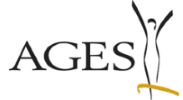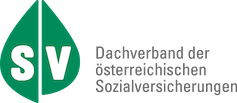Breastfeeding
The first 1000 days of a child's life offer special opportunities to set the course for long-term health at an early stage. Breastfeeding and early childhood nutrition make an important contribution to children's health, including in the primary prevention of obesity. National and international professional organisations recommend promoting breastfeeding as the natural and preferred form of nutrition for infants.
Studies and systematic reviews show that breastfeeding is associated with short- and long-term health benefits for both mother and child.
Breastfeeding can also help to promote the emotional bond between mother and child. Breastfeeding mothers need support and encouragement. During the breastfeeding period, it is therefore important to promote the well-being of the young mother and to give her a lot of joy and confidence.


Sukie-Endbericht
The Austria-wide Sukie study on breastfeeding behaviour and infant feeding provides up-to-date information on breastfeeding prevalence and infant feeding in Austria. The online survey took place in 2019/2020. The results show potential for improvement in both the total duration of breastfeeding and exclusive breastfeeding.
Stakeholder
As part of the health promotion programme "Eat right from the start!", all relevant stakeholders in the field of breastfeeding promotion were invited to the "Breastfeeding promotion" stakeholder dialogue on 16 June 2021.
Over 70 stakeholders and actors (e.g. from professional organisations/specialist associations, health promotion institutions, hospitals, municipal associations, insurance companies, science/research and training institutions, welfare organisations) accepted the invitation to reflect together on the results of the Sukie study and, building on this, to explore the question of how breastfeeding can be made even more attractive.

Becoming Breastfeeding Friendly –Recommendations for a breastfeeding-friendly Austria
In order to facilitate the informed and self-determined decision to breastfeed, it is necessary to create a structural and social framework to promote breastfeeding. For this reason, the Centre for Nutrition & Prevention at AGES was commissioned by the BMASGPK and together with the National Nutrition Commission (NEK) to develop ‘Recommendations for action for a breastfeeding-friendly Austria’ based on the evidence-based process of the international research initiative „Becoming Breastfeeding Friendly (BBF)“ of the Yale School of Public Health. The resulting report and the NEK recommendation provide a package of 14 strategic recommendations for action that lay the foundation for making Austria more breastfeeding-friendly in the long term and thus making a significant contribution to children growing up healthy.
Contact points for breastfeeding
For further information on breastfeeding and parent counselling, please contact the following contact points:
WHO Code of Marketing of Breast-milk Substitutes
In 1981, the 34th World Health Assembly (WHA) adopted a Code of Marketing of Breast-milk Substitutes. The Kodex is a set of recommendations to regulate the marketing of breast-milk substitutes, feeding bottles and soothers.
The aim of the Code is to contribute to safe and adequate nutrition for infants and young children by protecting and promoting breastfeeding and by ensuring the appropriate use of breast-milk substitutes where they are needed.
The online form of the Austrian Society for Paediatrics and Adolescent Medicine (ÖGKJ) can be used to report violations of the WHO Code: https://www.paediatrie.at/index.php/who-codex



